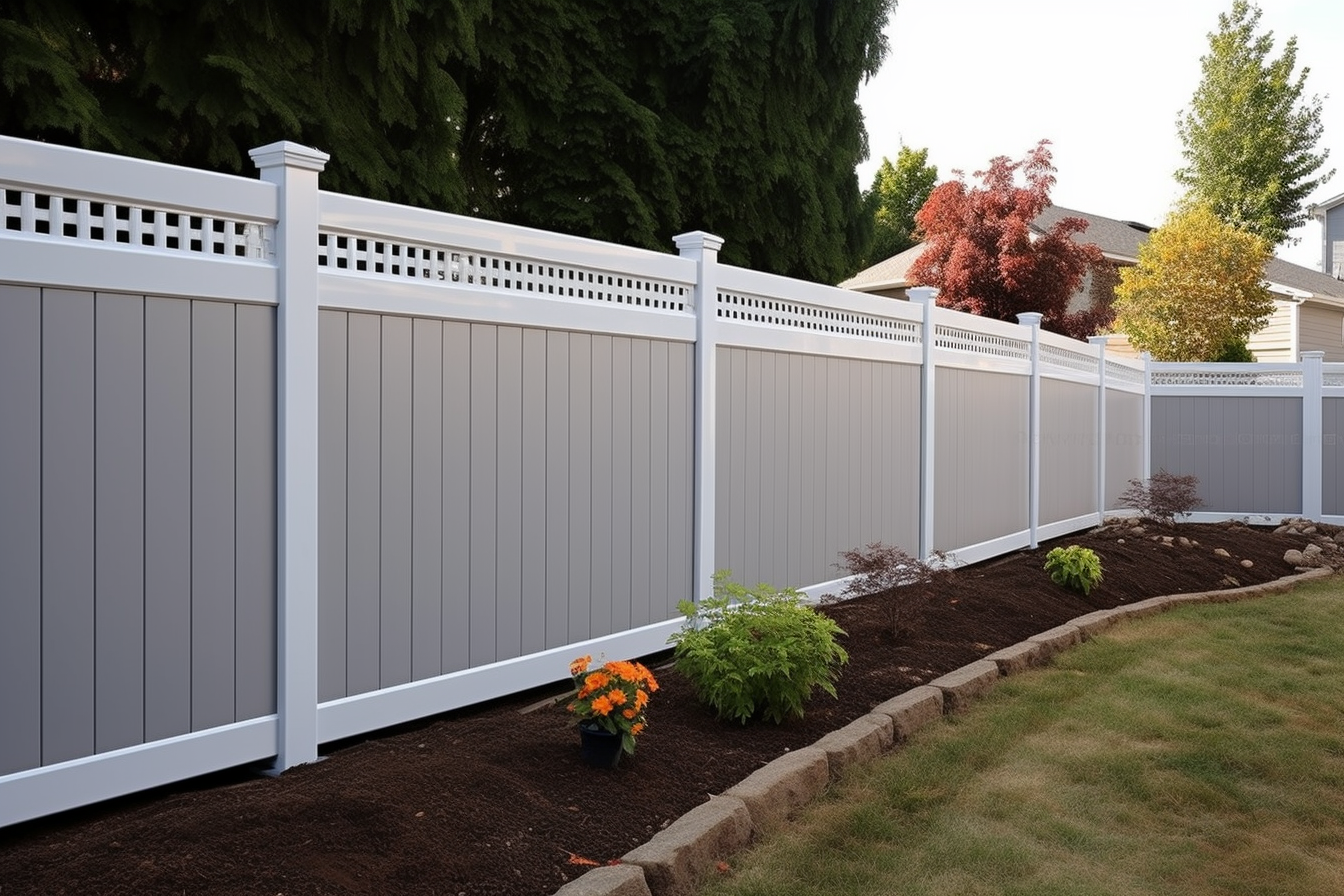Creating a Garden Oasis: The Ultimate Guide to Garden Fences
A well-designed garden fence can transform your outdoor space into a private sanctuary, enhance your property's aesthetic appeal, and provide essential security for your home. Whether you're looking to keep pets safely contained, deter unwanted visitors, or simply define your garden's boundaries, choosing the right fence is crucial. This comprehensive guide will explore various types of garden fences, their benefits, and key considerations to help you make an informed decision for your outdoor space.

Vinyl fences have gained popularity in recent years due to their durability and low maintenance requirements. These fences are available in various colors and styles, mimicking the look of wood without the need for regular painting or staining. Vinyl is resistant to rot, insects, and fading, making it an excellent long-term investment for your garden.
Aluminum fences offer a sleek, modern appearance and are known for their strength and longevity. They are rust-resistant and require minimal upkeep, making them ideal for homeowners seeking a low-maintenance option. Aluminum fences are often used to create an open, airy feel while still providing security for your garden.
How do I choose the right fence material for my garden?
Selecting the appropriate fence material depends on several factors, including your budget, aesthetic preferences, and specific needs. Consider the following when making your decision:
-
Durability: If you live in an area with harsh weather conditions, opt for materials like vinyl or aluminum that can withstand the elements.
-
Maintenance: Wood fences require regular upkeep, while vinyl and aluminum options are virtually maintenance-free.
-
Privacy: For maximum privacy, solid wood or vinyl panels are excellent choices. If you prefer a more open look, consider aluminum or wood picket fences.
-
Cost: Wood fences are often the most affordable option upfront, but may require more long-term maintenance. Vinyl and aluminum fences have higher initial costs but offer savings in terms of longevity and reduced maintenance.
-
Aesthetics: Choose a fence material and style that complements your home’s architecture and garden design.
What are the key benefits of installing a garden fence?
Installing a garden fence offers numerous advantages for homeowners:
-
Privacy: A well-designed fence creates a secluded outdoor space where you can relax and entertain without feeling exposed to neighbors or passersby.
-
Security: Fences act as a deterrent for potential intruders and keep children and pets safely within your property boundaries.
-
Property value: An attractive, well-maintained fence can enhance your home’s curb appeal and potentially increase its market value.
-
Noise reduction: Solid fences can help reduce noise from nearby streets or neighbors, creating a more peaceful garden environment.
-
Wind protection: Fences can shield delicate plants from strong winds, helping to maintain a healthy garden.
-
Boundary definition: Clearly marking your property lines can prevent disputes with neighbors and create distinct garden zones.
How tall should my garden fence be?
The ideal height for your garden fence depends on its primary purpose and local regulations. Here are some general guidelines:
-
Privacy fences: Typically range from 6 to 8 feet tall to provide maximum seclusion.
-
Security fences: Should be at least 6 feet tall to deter intruders effectively.
-
Decorative fences: Can be as low as 3 feet if the main goal is to enhance your garden’s aesthetics.
-
Pet containment: A 4 to 6-foot fence is usually sufficient for most dogs, but consider your pet’s size and jumping ability.
Always check with your local zoning office or homeowners association for any height restrictions before installing a new fence.
What are the maintenance requirements for different fence materials?
Proper maintenance is essential to ensure your garden fence remains attractive and functional for years to come. Here’s a comparison of maintenance requirements for common fence materials:
| Material | Maintenance Frequency | Tasks | Lifespan |
|---|---|---|---|
| Wood | Annual to bi-annual | Cleaning, staining/painting, replacing damaged boards | 15-20 years |
| Vinyl | Occasional | Cleaning with soap and water | 20-30 years |
| Aluminum | Minimal | Occasional cleaning, touch-up paint if needed | 30+ years |
Prices, rates, or cost estimates mentioned in this article are based on the latest available information but may change over time. Independent research is advised before making financial decisions.
How can I enhance the appearance of my garden fence?
A garden fence doesn’t have to be just functional; it can also be a beautiful addition to your outdoor space. Consider these ideas to enhance your fence’s appearance:
-
Plant climbing vines or flowers along the fence to create a living wall.
-
Install decorative post caps or finials to add a touch of elegance.
-
Incorporate lighting elements, such as solar-powered post lights or string lights, to create ambiance.
-
Use the fence as a backdrop for raised garden beds or hanging planters.
-
Paint or stain wooden fences in colors that complement your home and garden design.
By carefully considering your needs, budget, and aesthetic preferences, you can select the perfect garden fence to create a beautiful, functional, and secure outdoor space. Whether you opt for the natural charm of wood, the durability of vinyl, or the sleek look of aluminum, a well-chosen fence will enhance your garden’s appeal and your enjoyment of your outdoor living area for years to come.






